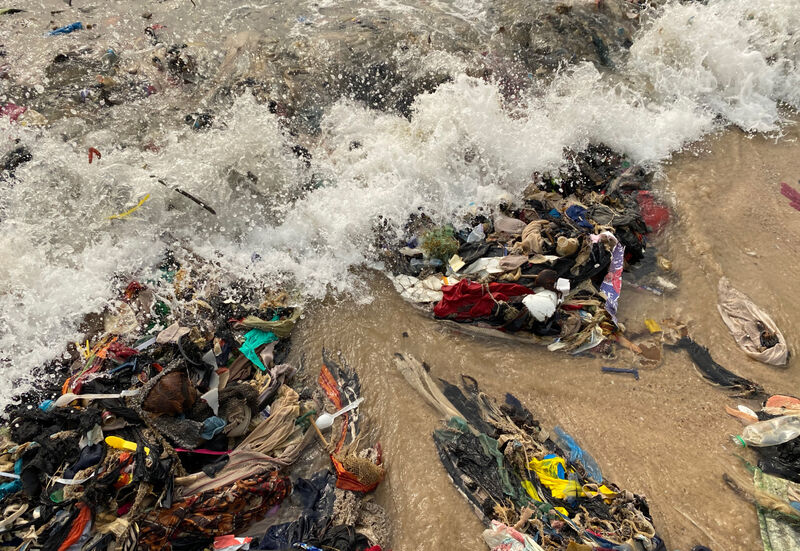Local Climate Stories: The Hudson Riverkeeper Sweep
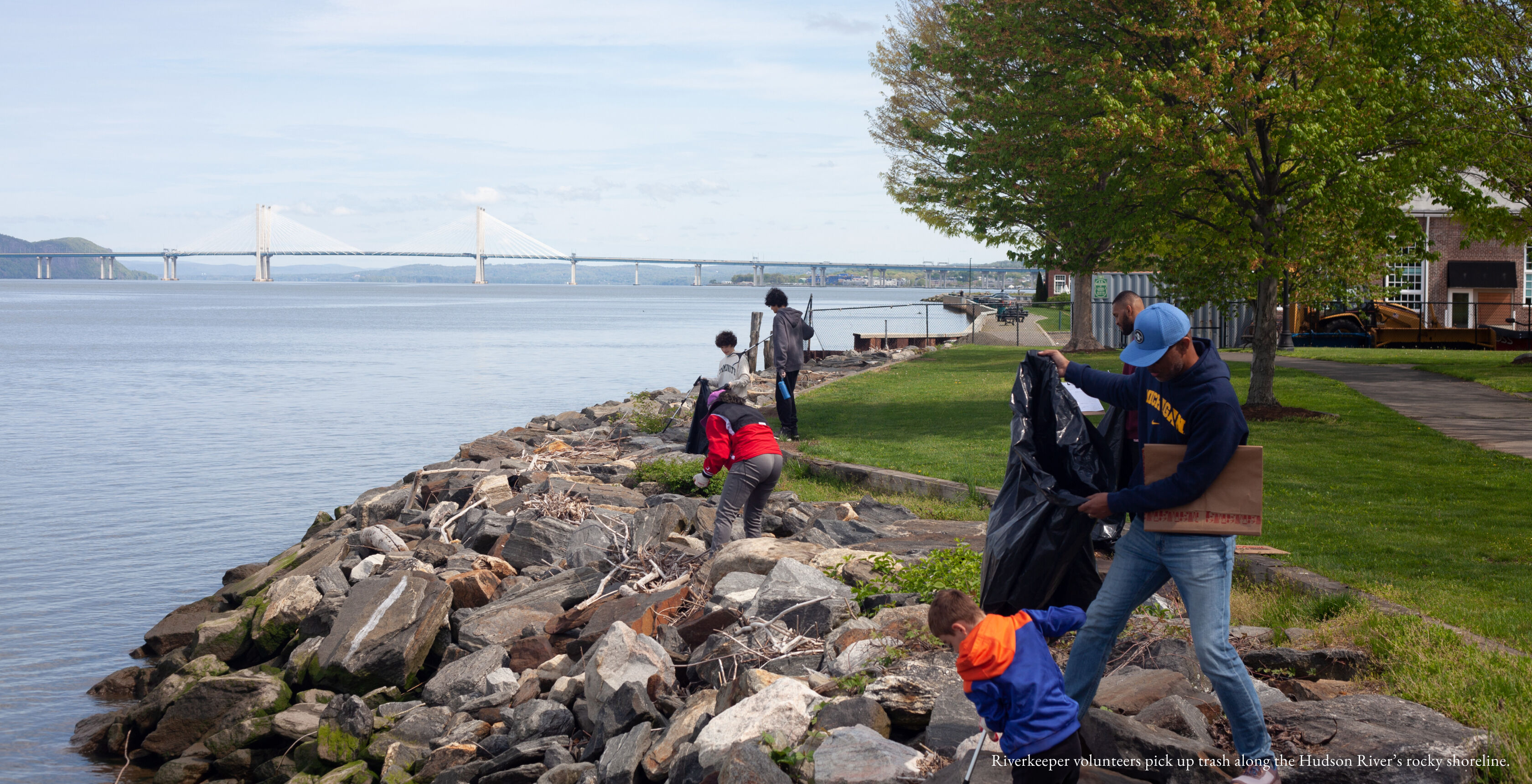
How participating in an environmental cleanup in my own community showed me I could make a difference in the climate crisis—and so can you.
Freak weather events, record-breaking temperatures and ever-growing emission thresholds—it's hard not to feel anxious in response to the latest climate news. After all, if you believe policy needs aggressive action on a macro level, it can seem futile, even silly, to try to make a difference on your own.
That’s how I felt before participating in “The Week,” a climate change pilot project through EILEEN FISHER. A small group of fellow employees and I spent three days engaging with the sobering reality of the climate emergency, which sparked my thinking—what if I started seeing more stories about local climate efforts in the news? What if the media focused on modest events where people got together to lift their communities, with no discernible reward? Could that serve as an antidote to the doom and gloom we read about on a national level, or at least a small respite from it? I decided to investigate local projects in my area with an environmental focus and see what my neighbors were up to—simple, communal efforts with little fanfare. Lo and behold, it wasn’t too difficult to find an accessible event that could yield palpable results. And that’s how I stumbled upon the Riverkeeper Sweep.
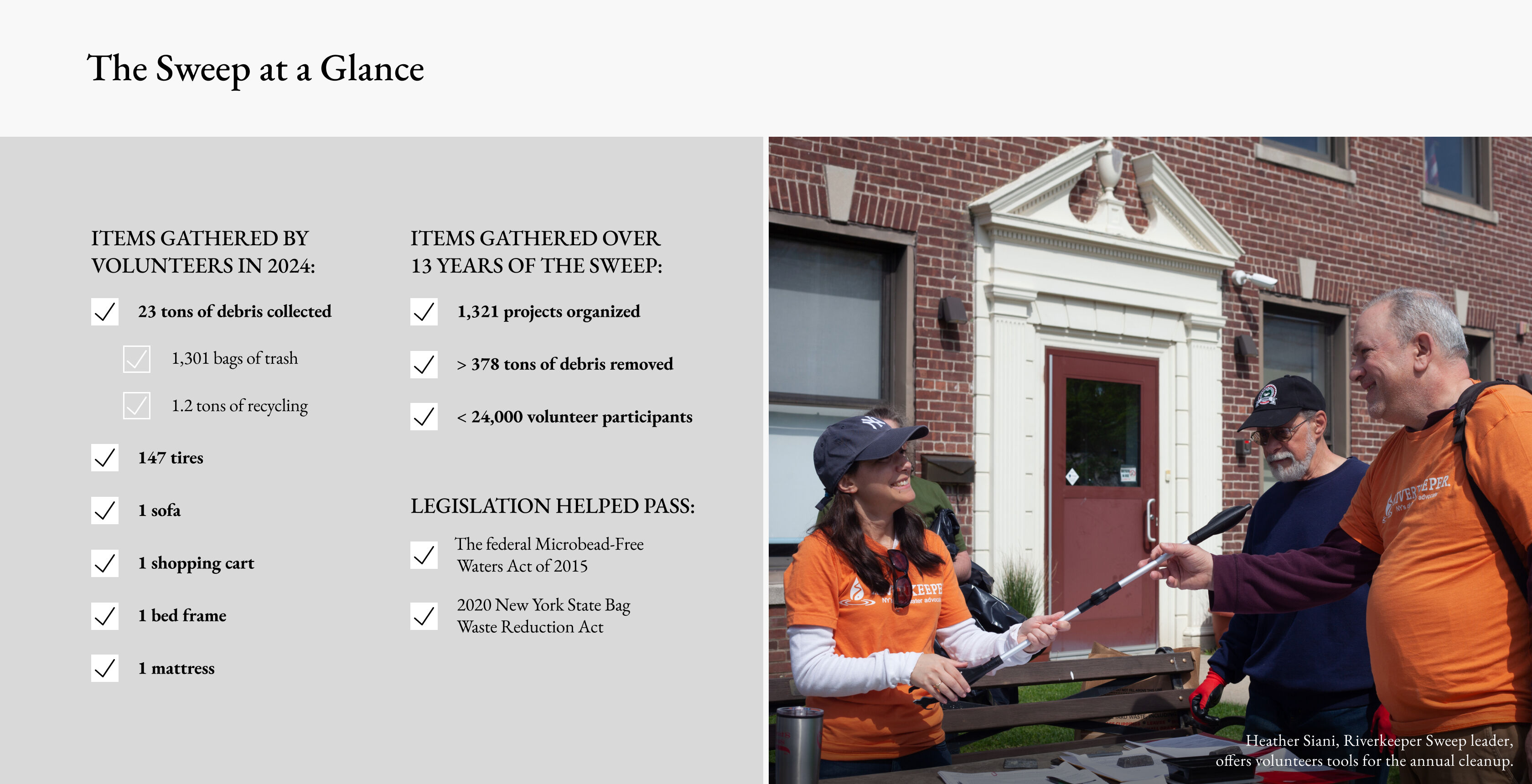
Taking Part in Community Action
Saturday, May 4, marked the 13th annual event—a day when 2,053 volunteers gathered along the Hudson with Sweep leaders to guide the way. That overcast morning, I joined the team in Irvington, New York, (a stone’s throw from EILEEN FISHER corporate headquarters) to remove litter and debris from the Scenic Hudson Park and its rocky river shoreline. Armed with gloves and trash bags, our team set off with volunteer Sweep leader Heather Siani to gather as much garbage as we could carry.
I paired up with Marilyn, a fellow Sweep first-timer and local Irvington retiree who I met that morning. When I asked her what compelled her to volunteer, she had a thoughtful reply:
“My friends and I—we’re always complaining. We’re concerned in general about the state of the environment. And we all have grandkids and we’re worried about what we’ll leave to our children and grandchildren. So I wanted to do some little thing to help, and I want to do more in the future.”
–Marilyn C., Sweep Volunteer
This seemed to echo my motive for writing this article—instead of feeling paralyzed by forces beyond our control, individuals like Marilyn remind us to focus on what we can control: collective community action.
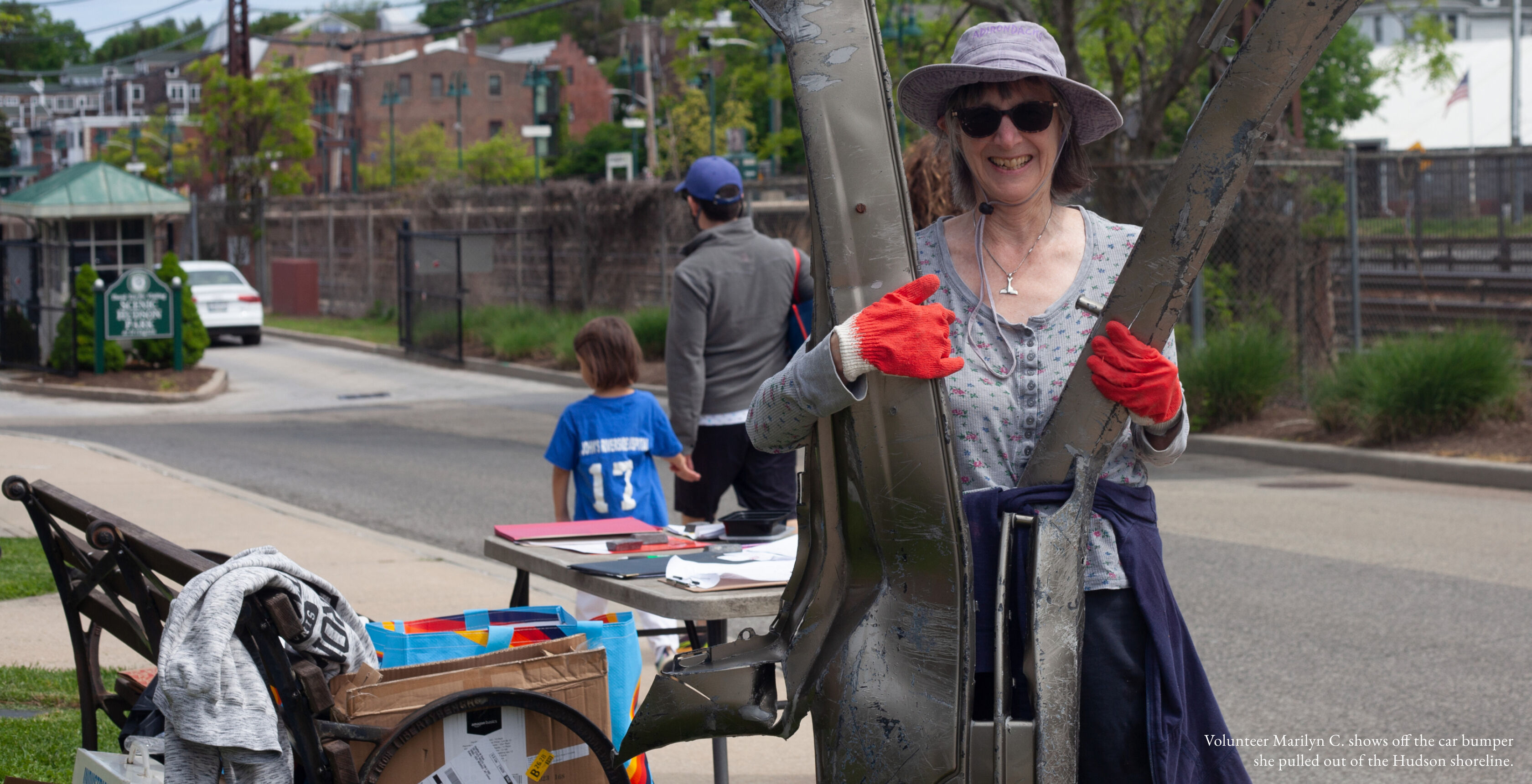
Seeing Our Impact Firsthand
What volunteers found that day was staggering. Riverkeeper reports that participants collected more than 23 tons of debris—specifically 1,301 bags of trash and 1.2 tons of recycling. The usual offenders were plastic bottles, aluminum cans and Styrofoam—another group even rescued a pristine VHS tape of My Cousin Vinny. My new friend Marilyn somehow managed to pull an entire car bumper out of the rocks lining the shore. Despite the seemingly high volume of waste collected, Sweep leaders have reported a gradual decrease in the amount over the years as they coordinate their cleanups on both land and water. The large-scale efforts of this annual event have not only helped reduce the amount of trash in and around the Hudson, but have allowed for some projects to shift their focus to ecological restoration (such as tree planting or removing invasive species) as sites become cleaner over successive Sweep events.
As the success of these initiatives grows, so does the involvement of dedicated individuals. Our Sweep leader, Heather, has worked as a volunteer with Riverkeeper since 2018, with this being her first year acting as leader. She’s participated in cleanups since childhood, but was compelled to shift into a leadership role after realizing these Sweeps can sometimes function as a temporary solution to a larger problem.
“Cleanups are good, but they can be a bit of a Band-Aid if we’re not getting right to the source of the problem. And that’s part of what Riverkeeper tries to do—that’s part of why we record what we pick up, to find out where it’s coming from.”
–Heather Siani, Riverkeeper Sweep Leader
And the results of these cleanups are undeniable. Over the 13 years that the Sweep has been running, Riverkeeper has organized 1,321 projects and almost 24,000 volunteers have collectively removed 378 tons of debris from the Hudson and its shores. Thanks to new efforts to track the trash using Sweep’s Comprehensive Data Collection Initiative, the organization can compile raw data and gain a clear sense of the collected items. This has enabled Riverkeeper to help pass legislation such as the federal Microbead-Free Waters Act of 2015 and the 2020 New York State Bag Waste Reduction Act—bills that help reduce the volume of microdebris and single-use plastics in the environment.
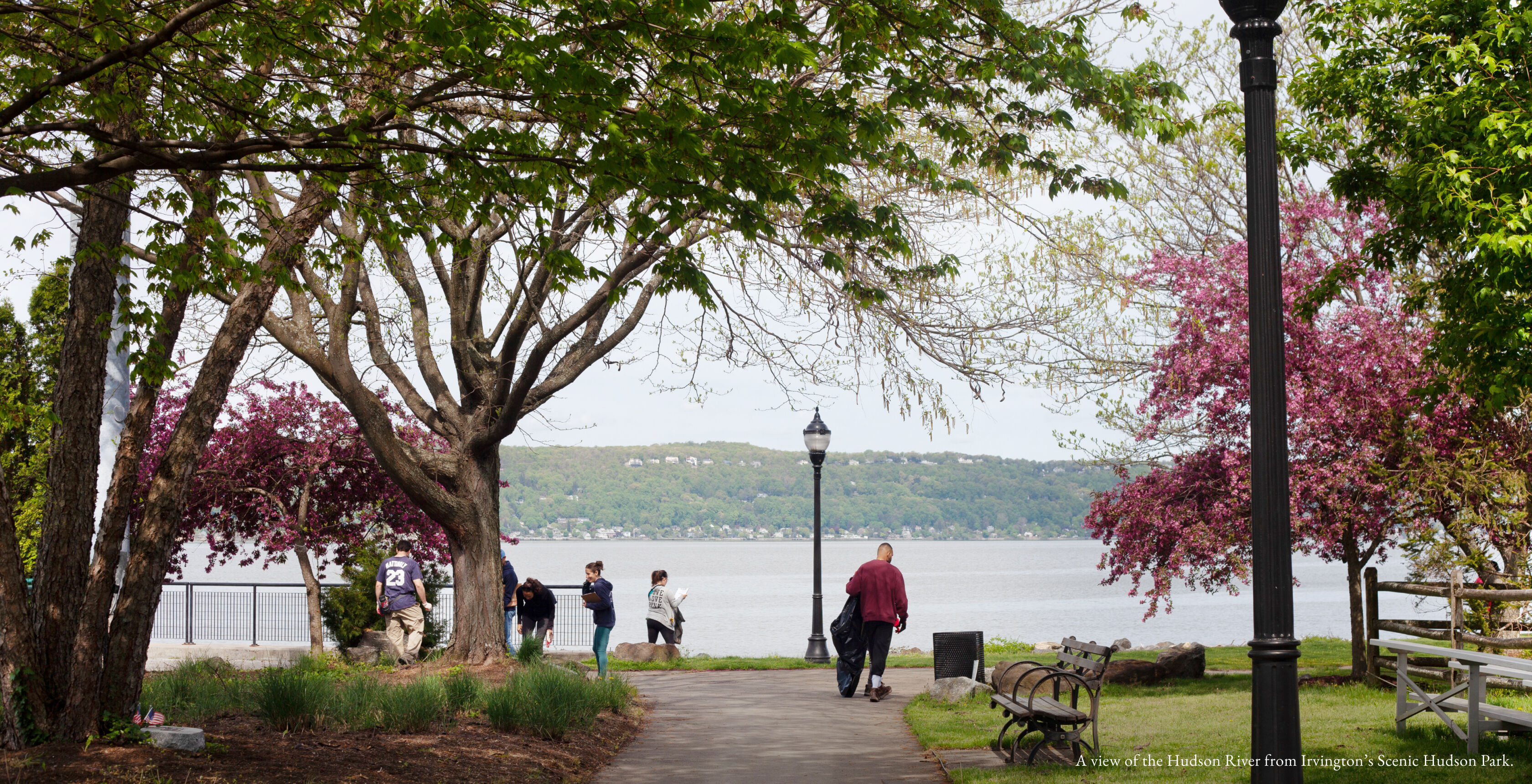
How to Get Involved
After seeing the impact of the data on policy, I realized the importance of my own contribution. We were doing more than just collecting trash—more than 2,000 people in the wider New York City area united in a common mission to not only clear our local parks and shores, but to help arm Riverkeeper with data that enables them to effect real change on a state and federal level. Just seeing that kind of progressive action is enough to bring me back for more.
Throughout the year, Riverkeeper organizes regular volunteering opportunities that focus on the Hudson and its shoreline; check them out here. The EILEEN FISHER corporate office even held its own cleanup event through Riverkeeper, picking up a total of 142 pounds of trash in Irvington’s Matthiessen Park this past spring. To find ways to get involved in your area, I recommend searching your community’s largest ecological resources (such as nearby parks or bodies of water) and finding organizations dedicated to protecting and enriching them. There are countless organizations working tirelessly to empower our communities, proving that individually our impact may be small, but together we can create real change.

